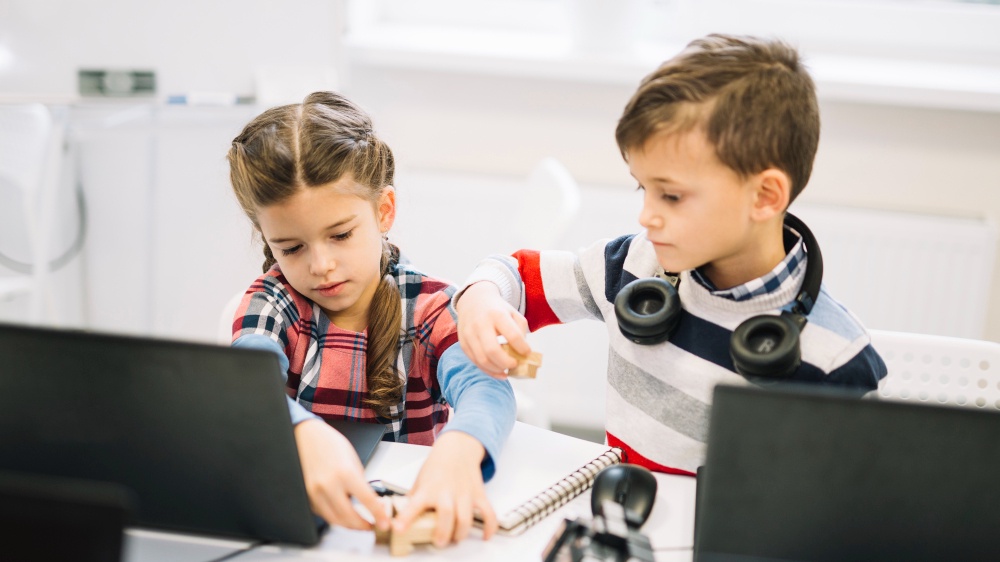Introduction
In the fast-paced digital era, where technology permeates every aspect of our lives, understanding the language of computers is akin to acquiring a universal skill. The concept of coding, once reserved for programmers and engineers, is gradually making its way into the educational forefront, targeting a much younger audience: kids. Recognizing the importance of nurturing young minds in the digital age, educators and parents are introducing coding education to children, equipping them with valuable skills that go beyond programming. In this article, we delve deeper into the significance of coding education for kids, exploring the benefits, approaches, and resources available to guide young learners on their coding journey.
Coding for Kids: The Importance
Coding, often described as the art of telling a computer what to do through a sequence of instructions, is an invaluable skill that empowers young minds to navigate the technology-driven world with confidence. While learning the intricacies of coding may seem complex, introducing it to kids offers numerous advantages:
Enhanced Problem-Solving:
Coding nurtures a structured approach to problem-solving, encouraging kids to break down complex tasks into smaller, manageable steps—a skill applicable across various disciplines.
Logical Thinking:
Through coding, children learn to establish cause-and-effect relationships, enhancing their logical thinking skills as they create programs that follow a logical progression.
Creativity and Innovation:
Far from just lines of code, coding is a creative process that allows kids to create interactive stories, games, animations, and even apps. This creative outlet fosters innovation and encourages out-of-the-box thinking.
Future-Ready Skills:
As our world becomes increasingly technology-driven, possessing coding literacy becomes an asset. Equipped with coding skills, kids are better prepared for the evolving job landscape, where technology prowess is highly sought after.
Approaches to Teaching Coding to Kids
Understanding that kids thrive in different learning environments, educators and parents have devised various approaches to introduce coding concepts:
Visual Programming Languages:
Visual programming languages like Scratch and Blockly simplify coding through drag-and-drop blocks. Kids manipulate graphical elements to create code sequences, making abstract programming concepts more tangible.
Game-Based Learning:
Coding platforms often gamify learning by integrating interactive games and puzzles that teach programming concepts. This approach keeps kids engaged while providing a seamless introduction to coding logic.
Hands-On Projects:
Encouraging kids to embark on real-world projects—such as designing websites, crafting animations, or even developing simple apps—inspires them to apply coding skills practically.
Robotics and Physical Computing:
Robotics kits, such as LEGO Mindstorms, allow kids to code robots to perform actions. This tangible link between code and physical response instills a deeper understanding of coding's real-world applications.
Online Coding Platforms:
Numerous online platforms offer structured coding lessons. These platforms, often equipped with interactive interfaces, provide a safe space for kids to experiment with code and see immediate results.
Key Concepts in Kid-Friendly Coding
Breaking down coding into accessible concepts is essential for effective learning:
Sequencing:
Kids learn that coding is about putting instructions in the correct order—a critical concept that sets the foundation for more complex programming logic.
Loops:
Understanding loops allows kids to create efficient, repetitive processes in their code, an important skill that becomes increasingly valuable as coding projects grow.
Conditional Statements:
Introducing conditional statements ("if-else") teaches kids to make decisions in their code based on certain conditions, mirroring real-life decision-making scenarios.
Variables:
Learning about variables—containers that store data—empowers kids to create dynamic code that adapts to changing circumstances.
Debugging:
Teaching kids to embrace debugging—identifying and fixing errors—is an essential part of coding education, instilling resilience and persistence.
Resources for Kid-Friendly Coding Education
Scratch:
Developed by MIT, Scratch provides a user-friendly platform for kids to create interactive stories, animations, and games using colorful visual blocks.
Code.org:
This nonprofit organization offers free coding lessons, often infused with themes from popular franchises like Minecraft and Star Wars, making coding enticing for kids.
Tynker:
Tynker features coding courses, interactive puzzles, and games that progressively teach coding concepts, catering to various ages and skill levels.
LEGO Education:
LEGO's robotics and coding kits merge the physical building with coding, allowing kids to construct and code their robots—a dynamic approach to learning.
Osmo:
Osmo's coding kits combine physical manipulatives with digital interaction, providing an immersive coding experience that bridges the physical and digital realms.
Conclusion
As the digital landscape continues to evolve, nurturing a generation of young minds versed in coding is an investment in the future. The basics of coding education for kids extend far beyond mere lines of code; they empower children with skills that enhance problem-solving abilities, stimulate creative thinking, and equip them with tools to thrive in the technology-driven world. As parents and educators guide them through the intricacies of coding, children embark on a journey that not only lays the foundation for future innovation but also prepares them to be active creators, contributors, and problem solvers in the digital age. By embracing the basics of coding education, we nurture a generation of future innovators who will shape the world with their creativity, vision, and technological prowess.


No comments yet